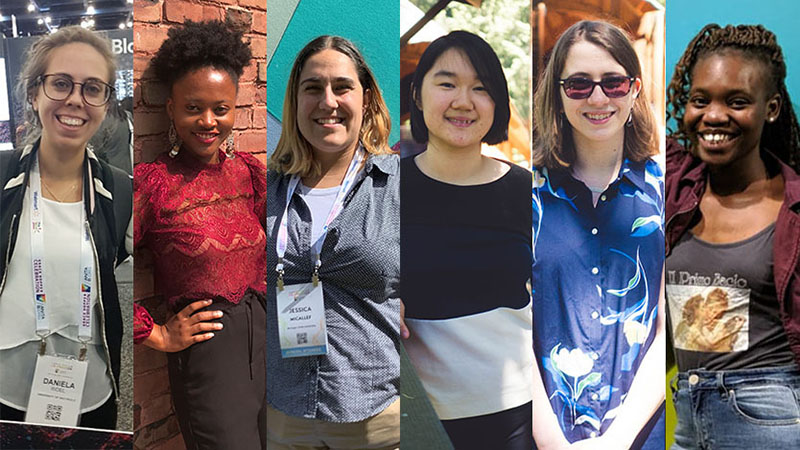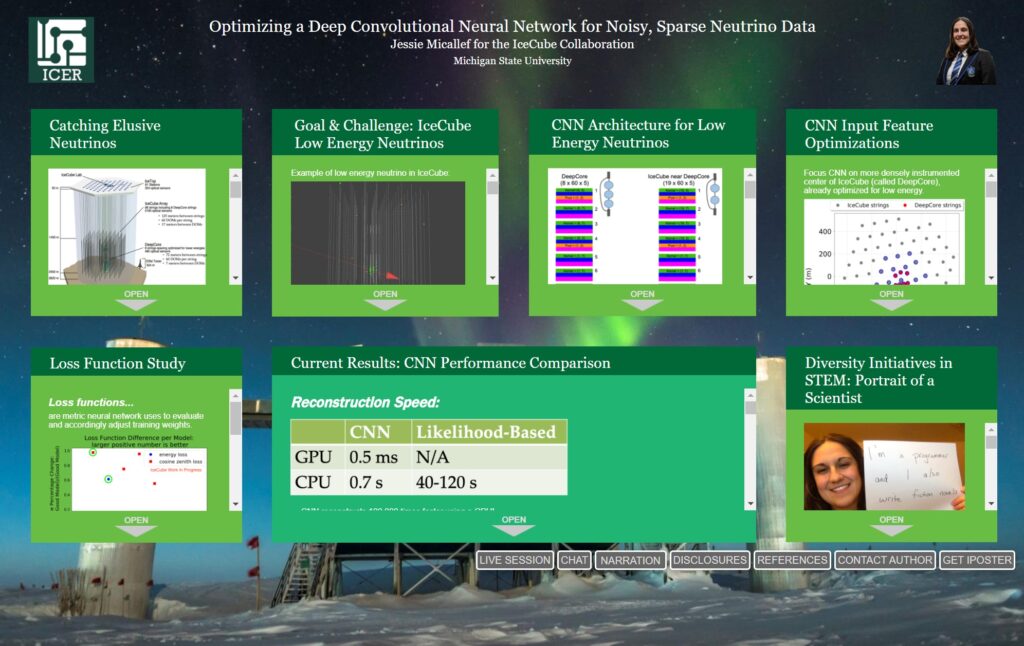Windows Insider article published on Dec 4, 2020

This year’s Grace Hopper Celebration (GHC) went virtual, and some of our past Grace Hopper Award winners attended and took us through how this year’s event is helping them look to the future of their own careers and the technology industry.Play Video
Why diversity in tech matters
As Pelagia Majoni, one of our 2019 Grace Hopper Award winners, 2020 Abie Award Winner, and one of this year’s GHC presenters, said, “Young girl, wherever you are, the world needs you now more than ever. You are brilliant, talented, curious and weird, but that’s perfect!”
We know that diversity helps us build technology that works better for everyone, which is why Microsoft is committed to having a more global mix of employee voices and experiences across a range of communities, identities, and geographies.
One of this year’s GHC keynotes by Brenda D. Wilkerson talked about the importance of looking outside your individual career goals in technology, and how building tech to fight for issues like housing can matter for entire communities and society as a whole. For Veronica Lewis, a data science and assistive technology student at George Mason University who also has low-vision, accessibility is her passion.
“It reminded me of why I love studying accessibility and assistive technology, because my life goal is to take over the world with assistive technology and ensure that people with disabilities and chronic illnesses are able to access any technology that they need or want to use,” she said. “Working in tech allows me to help bring my accessibility ideas to life and share them with a wide audience.”
Diversity in tech empowers the industry to solve big issues that can make the world a better place. One presenter talked about how tracking COVID-19 through data science, including overlooked minor cases, helped identify over 40 symptoms of the virus. Google Maps talked about how they’ve created Live View, the ability to see a street view using augmented reality, to help people visually navigate more easily.
Another session Veronica attended talked about the importance of thinking about your user when building APIs and interfaces. “Women, people with disabilities, and people from different cultures may use an individual product or API differently,” said Veronica. While I’ve always thought of disability when it comes to accessible design, I hadn’t thought as much about how people may use different pronouns that are not listed in dropdown menus, how some names may be marked as errors, or need to be shortened to fit in text boxes.”
“It’s definitely something I will consider moving forward in the design process—making sure that people from a variety of backgrounds are able to test a product, not just people who I think would benefit from a product or use it like I expect them to,” she said.
Supporting diversity with virtual events
While our Windows Insiders were thinking about the importance of diversity in their tech projects, they also realized all the ways the virtual event format of this year’s event made it more accessible.
Scheduling no longer determined what they were getting out of the event. “I have been able to instantly have access to session recordings, and I can watch sessions on my own time or pause to go grab a snack without missing any information,” Veronica said.
On-demand sessions allowed her to actually squeeze in more than she could at in-person event. “I can still have conversations about these talks on the same day they are aired, and I don’t have to wait for a recording or only listen to half of a given talk,” she said.

For Elizabeth Lin, a computer science student at the University of Washington, she took the stress out of the event by preparing and networking early. “I personally joined women in tech groups like National Center for Women & Information Technology (NCWIT) and Rewriting the Code on Facebook prior to the conference, where I learned about the agenda and technical infrastructure of the conference and found recruiters and peers to ask questions and network with,” she said.
Virtual scheduling also gave Elizabeth the opportunity to explore a different part of computer science she might not have had time for otherwise. “I fell in love with this animation workshop led by a software engineer at Disney where she showed how to leverage a motion path tool to design animations!” she said.
Daniela Ridel, a PhD student in computer science at the University of São Paulo in Brazil, found that networking was still key for her, even at a virtual event. “These networking events give us a unique possibility of talking with people we would probably never bump into in real life,” she said. “During GHC, I’ve got the opportunity to talk with young professionals who are excelling in tech, robotics, and the self-driving car industry. Those talks helped me to refuel my motivation to keep working hard towards my goals and future.”
Presentations being prepared ahead of time for a virtual conference also helped make them more accessible. “I’m also very appreciative of the captions that have been made available for all of the sessions, as this has helped me not only with following along with sessions but also with being able to take notes as people were talking,” Veronica said.
While virtual events are building new opportunities to get more out of events, Elizabeth noted the importance of being understanding while getting used to these new formats. “Definitely virtual is new for everyone, so be open minded and understanding of the recruiters and everyone helping you along the way.”
Bringing diversity into your career
The same kind of flexibility our Insiders saw in the event is also one of the best ways to support more accessible and diverse workplaces.
Veronica saw in her sessions how this can empower employees with disabilities and chronic illnesses. “Managers and employees can work together to create a structured but flexible workday that allows people to work without exasperating existing health issues,” she said.
Being a good leader is something Nana Aba Turkson, a computer science and robotics student at Mount Holyoke College is always striving for, and the advice she heard at this year’s Grace Hopper Celebration focused on empowering all employees.
“You have to find ways to let everyone on the team know that their opinions are valued,” Nana Aba said. “It is productive as a leader to be well-informed on almost every aspect of the project to be able to appreciate the diverse opinions of your project members by virtue of their different areas of expertise and experiences.”
Adapting to communicate better for each of your employees’ needs can also make you a better leader. “We all have different levels of grasping information. Some take time to process information. Others are able to comprehend what is being said quickly. Others may be going through tough times in the wake of the pandemic, and others may not,” Nana Aba said. “It is imperative to be sensitive to the issues at hand and still seeing to it that work is being done.”

Jessie Micallef, a PhD student in computational mathematic science engineering and physics at Michigan State University and a GHC poster presenter this year, sees mentoring as another great way to foster diverse talent in the industry. “You don’t have to be an ‘expert’ to be a mentor! You just need experience and to be willing to share your experience with others,” she said. “No one is an expert in everything, but you can offer your perspective and guidance from your experience.”
The same is true in workplaces. “Be genuinely interested in the career growth of your team members and work hand-in-hand to support them in areas that might need to grow,” said Nana Aba.
As you empower others, make sure you’re also sharing the opportunities you’ve found most valuable. “There is a lot out there, so tell your mentees about things that were impactful for you. Think about conferences, funding opportunities, or groups and programs that have been helpful for you or others you know,” Jessie said. “The biggest thing is just making them aware of what even exists out there!”
Moments like GHC where communities come together, even virtually, help us make a better tech industry for the future. “Human beings are constantly adapting themselves to the difficulties life imposes,” Daniela said. “In these times, when we miss so much a hug or seeing a friend’s face in 3D, celebrations like GHC help us to distract from real life, and also to evolve professionally and as people.”
Original full design:

